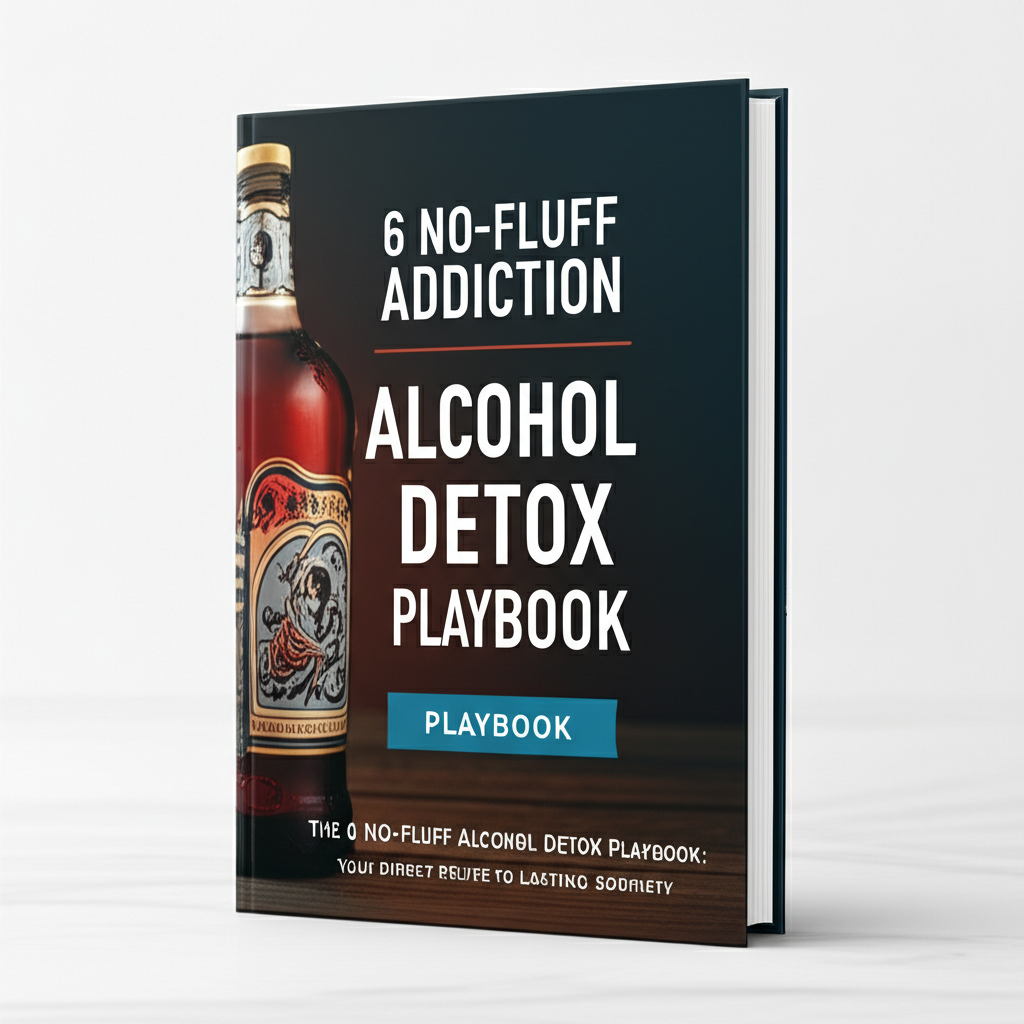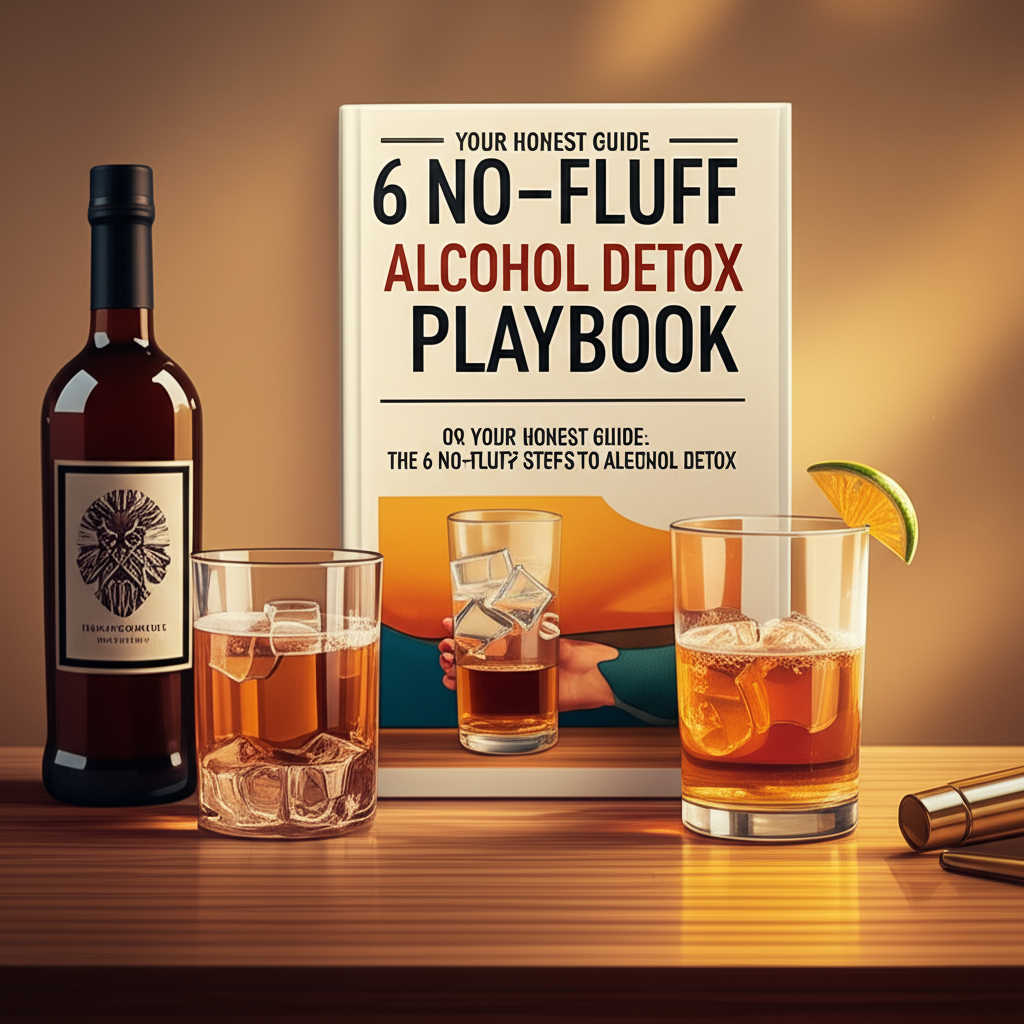The decision to stop drinking alcohol is arguably one of the bravest and most life-altering choices an individual can make. It’s a powerful step towards reclaiming your health, relationships, and future. However, the path to sobriety, particularly the initial stage of detoxification, is often fraught with challenges and potential dangers. Many mistakenly believe they can "tough it out" or detox alone at home, unaware of the severe, sometimes fatal, risks involved.
This comprehensive guide is designed to empower you with knowledge and a clear roadmap. We’ll delve into three essential checklists that are not just recommendations but vital components for a safe, effective, and successful alcohol detox. From the critical planning stages to medical supervision and the crucial transition into long-term recovery, understanding these steps is your lifeline to a healthier, sober life. This isn’t just about stopping drinking; it’s about starting fresh, safely and confidently.
Understanding the Urgency: Why Professional Detox is Non-Negotiable
Before diving into our checklists, it’s paramount to understand why professional medical supervision during alcohol detox is not just a good idea, but often a life-saving necessity. The body’s dependence on alcohol runs deep, and abruptly removing it can trigger a cascade of severe physical and psychological reactions.
The Perils of Cold-Turkey Detox
Attempting to detox from alcohol "cold turkey" or without medical oversight can lead to a spectrum of withdrawal symptoms, ranging from uncomfortable to life-threatening. Alcohol dependence alters brain chemistry, and when alcohol is suddenly absent, the central nervous system becomes overactive.
Initially, symptoms might include anxiety, insomnia, headaches, sweating, nausea, and tremors. These can begin within hours of the last drink. However, for individuals with prolonged or heavy alcohol use, withdrawal can rapidly escalate into more severe and dangerous conditions:
- Hallucinations: Visual, auditory, or tactile hallucinations can occur within 12-24 hours.
- Seizures: Alcohol withdrawal seizures are a significant risk, typically appearing 24-48 hours after the last drink. These can be generalized tonic-clonic seizures and pose a serious threat of injury or even death.
- Delirium Tremens (DTs): This is the most severe form of alcohol withdrawal, often emerging 48-72 hours after cessation. DTs are characterized by confusion, disorientation, rapid heart rate, high blood pressure, fever, profuse sweating, and severe tremors. Without immediate medical intervention, DTs can be fatal due to cardiac arrest, respiratory failure, or aspiration.
The unpredictable nature and rapid progression of these symptoms underscore why a medically supervised environment is absolutely critical.
The Science Behind Alcohol Withdrawal
To put it simply, alcohol is a central nervous system depressant. It enhances the effects of gamma-aminobutyric acid (GABA), a neurotransmitter that reduces brain activity, leading to feelings of relaxation and sedation. Simultaneously, alcohol inhibits the effects of glutamate, an excitatory neurotransmitter. Over time, the brain adapts by reducing its natural GABA receptors and increasing glutamate activity to counteract the constant presence of alcohol.
When alcohol is suddenly removed, this delicate balance is thrown into chaos. The brain, now accustomed to suppressing its excitatory functions, goes into overdrive. The lack of alcohol means less GABA activity and unchecked glutamate activity, leading to hyper-excitability, which manifests as anxiety, tremors, seizures, and the other severe symptoms of withdrawal. Medical detox aims to safely manage this imbalance, often using medications that mimic alcohol’s effect on GABA receptors, allowing the brain to gradually re-establish its natural equilibrium.
Your Lifeline to Sobriety: The 3 Essential Alcohol Detox Checklists
Navigating alcohol detox can feel overwhelming, but by breaking it down into manageable steps, you can approach it with clarity and confidence. These three checklists cover every critical aspect, ensuring you’re prepared, safe, and set up for long-term success.
Checklist 1: The Pre-Detox Assessment & Planning
This initial checklist is all about preparation. Before you even set foot in a detox facility, there are crucial steps to take to ensure a smooth, safe, and effective transition into treatment. This phase lays the groundwork for everything that follows.
- 1. Honest Self-Assessment & Commitment:
- Action: Take an honest look at your drinking habits and acknowledge the need for change. Write down your motivations for sobriety.
- Why it’s essential: True commitment is the bedrock of recovery. Understanding your "why" will be a powerful motivator during challenging moments.
- 2. Medical Consultation (Pre-Detox):
- Action: Schedule an appointment with your primary care physician before you stop drinking. Discuss your alcohol use, medical history, and any existing health conditions.
- Why it’s essential: Your doctor can assess your overall health, identify potential risks during detox (e.g., heart conditions, liver damage), and provide referrals to suitable detox facilities. They can also advise on any medications you’re currently taking and how they might interact with detox protocols.
- 3. Research & Choose a Reputable Detox Facility:
- Action: Research various detox options. Consider inpatient vs. outpatient, location, amenities, staff qualifications, accreditations (e.g., Joint Commission, CARF), and services offered (e.g., dual diagnosis treatment).
- Why it’s essential: Not all detox centers are created equal. A reputable facility will offer 24/7 medical supervision, individualized treatment plans, and a safe, supportive environment. Look for places that prioritize patient comfort and safety.
- 4. Build a Support System:
- Action: Inform a trusted family member, close friend, or sponsor about your decision to detox. Delegate responsibilities (childcare, pet care, work obligations) for the duration of your detox and initial recovery.
- Why it’s essential: You don’t have to do this alone. A strong support system provides emotional encouragement, practical assistance, and accountability, which are vital during this vulnerable time.
- 5. Financial & Logistical Preparation:
- Action: Verify your insurance coverage for detox and treatment. Understand out-of-pocket costs. Arrange for time off work or school. Plan transportation to and from the facility.
- Why it’s essential: Addressing these practicalities upfront reduces stress and allows you to focus entirely on your recovery once detox begins.
- 6. Mental & Emotional Preparation:
- Action: Understand that detox will be challenging but temporary. Prepare for potential discomfort and emotional fluctuations. Remind yourself of the long-term benefits.
- Why it’s essential: A realistic mindset helps manage expectations and build resilience. Knowing what to anticipate makes the process less frightening.
Checklist 2: The Detox Process Itself – Medical Supervision & Comfort
Once you’ve completed your pre-detox planning, the next phase is the actual detoxification. This checklist focuses on what to expect and what critical elements should be in place during your stay at a professional detox facility.
- 1. Comprehensive Medical Intake & Evaluation:
- Action: Upon arrival, expect a thorough physical examination, blood tests (to check liver function, electrolyte balance, etc.), and a detailed medical history review. A psychiatric evaluation may also be conducted.
- Why it’s essential: This initial assessment allows the medical team to create a personalized detox plan, identify any co-occurring mental health disorders (dual diagnosis), and anticipate specific withdrawal risks.
- 2. Medication Protocol for Symptom Management:
- Action: You will likely be administered medications designed to alleviate withdrawal symptoms and prevent complications. Common medications include benzodiazepines (e.g., Librium, Ativan, Valium) to prevent seizures and reduce anxiety, anti-nausea medications, and sleep aids. Vitamin supplements, especially Thiamine (B1), are often given to prevent neurological damage like Wernicke-Korsakoff syndrome.
- Why it’s essential: These medications safely taper your body off alcohol, managing the dangerous hyper-excitability of the nervous system and making the process significantly more comfortable and safe than attempting it alone.
- 3. Continuous Medical Monitoring:
- Action: Throughout your detox, your vital signs (heart rate, blood pressure, temperature, respiration) will be regularly monitored by medical professionals. Your symptoms will be assessed frequently, and medication dosages adjusted as needed.
- Why it’s essential: Constant supervision ensures that any escalation of withdrawal symptoms (like the onset of DTs or seizures) is detected immediately, allowing for rapid intervention and preventing life-threatening complications.
- 4. Nutritional Support & Hydration:
- Action: You will be provided with regular, nutritious meals and encouraged to stay hydrated. Intravenous (IV) fluids may be administered if you are severely dehydrated or unable to keep food down.
- Why it’s essential: Alcohol abuse often leads to severe nutritional deficiencies and dehydration. Restoring proper nutrition and fluid balance is crucial for physical healing and brain function, aiding in recovery.
- 5. Safe, Supportive, and Comfortable Environment:
- Action: The facility should provide a clean, quiet, and calming environment where you feel safe and respected.
- Why it’s essential: A comfortable and non-judgmental setting reduces stress and anxiety, which can exacerbate withdrawal symptoms. Feeling secure allows you to focus on the detoxification process.
- 6. Early Engagement in Therapeutic Activities:
- Action: Depending on your stability, you may be offered gentle introduction to individual counseling, educational sessions about addiction, or light group therapy sessions.
- Why it’s essential: While detox primarily addresses physical dependence, introducing therapeutic elements early helps bridge the gap between detox and the next crucial stage of treatment, fostering a holistic approach to recovery.
Checklist 3: Post-Detox Planning & Transition to Recovery
Detoxification is only the very first step on the journey to lasting sobriety. It addresses the physical dependence but does not treat the underlying psychological and behavioral aspects of addiction. This checklist is critical for ensuring a smooth and effective transition from detox into comprehensive addiction treatment and long-term recovery.
- 1. Comprehensive Post-Detox Treatment Plan:
- Action: Work with your detox team to develop a personalized treatment plan for after detox. This might include residential inpatient rehabilitation, intensive outpatient programs (IOP), or regular outpatient therapy.
- Why it’s essential: Without follow-up treatment, the likelihood of relapse is extremely high. A structured treatment plan addresses the root causes of addiction, teaches coping mechanisms, and prevents a return to substance use.
- 2. Therapy & Counseling Engagement:
- Action: Actively participate in individual therapy (e.g., Cognitive Behavioral Therapy – CBT, Dialectical Behavior Therapy – DBT), group therapy, and potentially family therapy.
- Why it’s essential: Therapy helps uncover and process the emotional, psychological, and environmental factors contributing to alcohol abuse. It equips you with healthy coping skills, communication strategies, and tools for managing triggers and cravings.
- 3. Embrace Support Groups:
- Action: Attend regular meetings of peer support groups such as Alcoholics Anonymous (AA), SMART Recovery, or other relevant groups.
- Why it’s essential: These groups provide invaluable peer support, shared experiences, a sense of community, and a framework for maintaining sobriety. Hearing others’ stories and sharing your own can be incredibly healing and empowering.
- 4. Develop a Robust Aftercare Plan & Relapse Prevention Strategy:
- Action: Work with your therapist or case manager to create a detailed aftercare plan, including ongoing therapy appointments, support group schedules, and a personalized relapse prevention strategy. This might also involve exploring sober living arrangements.
- Why it’s essential: Relapse is a common part of recovery, but a solid aftercare plan helps identify triggers, develop proactive coping strategies, and provides immediate resources if a slip occurs, minimizing its impact.
- 5. Cultivate Healthy Lifestyle Changes:
- Action: Integrate healthy habits into your daily routine, such as regular exercise, a balanced diet, adequate sleep, and stress-reduction techniques (e.g., meditation, mindfulness). Explore new hobbies or interests.
- Why it’s essential: A healthy lifestyle supports physical and mental well-being, reduces stress, and fills the void that alcohol once occupied, contributing significantly to sustained sobriety.
- 6. Build and Nurture a Sober Support Network:
- Action: Actively seek out and build relationships with individuals who support your sobriety and are committed to their own healthy lifestyles. Distance yourself from people or environments that trigger your alcohol use.
- Why it’s essential: Surrounding yourself with positive, sober influences creates a strong foundation for long-term recovery, offering encouragement and understanding as you navigate your new life.
Conclusion: Your Journey Begins Here
Embarking on the journey to sobriety is a monumental undertaking, but it is one filled with immense hope and the promise of a healthier, more fulfilling life. The three essential alcohol detox checklists – Pre-Detox Assessment & Planning, The Detox Process Itself, and Post-Detox Planning & Transition to Recovery – are your comprehensive guide. They transform what can feel like an insurmountable challenge into a series of clear, actionable steps.
Remember, detox is not the finish line; it is the critical, life-saving first step. It clears the physical hurdle, allowing you to then engage fully in the deeper work of recovery. By adhering to these checklists and committing to professional guidance, you are not just stopping a harmful habit; you are rebuilding your life on a foundation of health, resilience, and self-care. Don’t hesitate to take this vital step. Your future self will thank you for the courage you show today.








